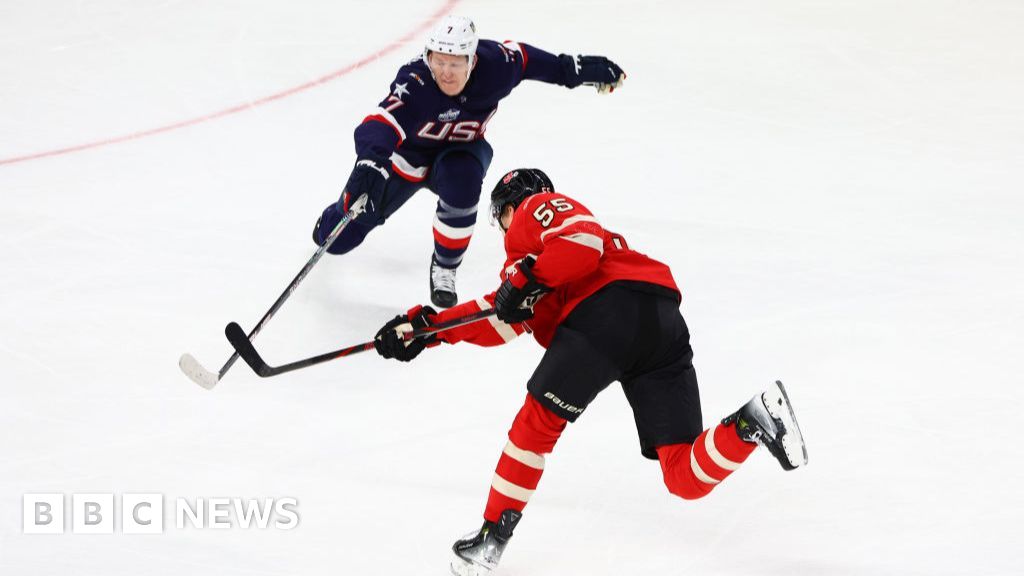Canada and the US are battling it out on the rink in a championship game that promises to be about more than just ice hockey.
On any ordinary day, the final match of the 4 Nations Face Off would have been a significant one for the two neighbouring countries who have long been friendly rivals on the ice.
But heating up the rivalry this time was the looming threat of an economically damaging trade war, as well as Donald Trump’s persistent musings to annex Canada and make it the 51st state.
Trump himself was invited to attend the game in Boston by Team USA’s general manager Bill Guerin. The US president was unable to make it, but made a point of calling the team to wish them good luck.
He also repeated his desire to absorb Canada, writing in a Truth Social post ahead of the game that he hoped the country “will someday, maybe soon, become our cherished and very important, Fifty First State”.
Canada’s public safety minister David McGuinty later told reporters he took Trump’s quip as a sign that the president was “worried about the outcome” of the game.
For fans across North America, the final was a “dream match-up,” ice hockey writer Daniel Nugent-Bowman told the BBC. Not since the 2014 Winter Olympics had the top men’s ice hockey players from Canada and the US faced off in such a consequential game.
Both countries boast some of the biggest stars in the National Hockey League (NHL), like Canadians Mitch Marner and Connor McDavid, and Americans Auston Matthews and Jack Eichel. The game was a chance for this new generation of players to prove themselves.
But in Canada, the game was also a personal one, giving both die-hard and casual fans an opportunity to bask in national pride at a time when the country’s sovereignty looks to be threatened by its closest neighbour.
The first game between Canada and the US of this tournament, played on 15 February in Montreal, saw the American national anthem booed by Canadian fans, despite the announcer asking fans beforehand – in both English and French – to show respect to the opposing team.
Vocal protests of the US anthem have become a common sight at sports games in Canada over the past month since Trump threatened a 25% tariff on all Canadian goods.
When it came to singing the Canadian anthem, fans – including Canadian Prime Minister Justin Trudeau – belted it out at the top of their lungs.
Three fist fights then broke out on the ice in the first nine seconds of the game between the American and Canadian players. It was an astonishing sight, even by ice hockey standards where fights are common.
Matthew Tkachuk, a Team USA player who was among those involved in the brawls, told reporters afterwards that his team needed to deliver a message that “It’s our time right now.”
Perhaps the loudest message sent that day was Team USA’s decisive 3-1 win against Canada.
Few Canadians would dispute how integral ice hockey is to the country’s national identity.
The sport has served as a backdrop to some of the most patriotic moments in Canada’s history, like Sidney Crosby’s overtime gold medal goal at the 2010 Winter Olympics in Vancouver.
Historically, Canada has had the upper hand against the US. The two countries have met 20 times in best-on-best tournaments since the 1976 Canada Cup, with Canada winning 14 of those games.
